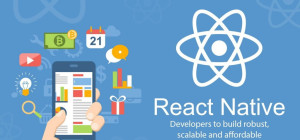Web development is a dynamic field that constantly evolves with the emergence of new technologies and changing industry trends. As we approach 2023, several programming languages continue to dominate the web development landscape. Whether you’re a newcomer to web development or an experienced developer looking to expand your skill set, here are some of the best web development languages to learn in 2023.
What is Web Development
Web development is the process of creating and maintaining websites and web applications. It encompasses a wide range of activities, from designing the visual layout of a website to programming its functionality and ensuring it runs smoothly. Web developers use various programming languages, such as HTML, CSS, and JavaScript, to build the front end, which is what users interact with. They also work on the back-end, which involves server-side scripting, databases, and server management to handle data and perform tasks behind the scenes. Successful web development requires a combination of technical skills, creativity, and a deep understanding of user experience to deliver engaging and functional online experiences.
What is the difference between Programming Languages vs. Coding Languages
| Aspect | Programming Languages | Coding Languages |
|---|---|---|
| Definition | Programming languages are formal languages used to instruct computers to perform specific tasks and implement algorithms. | Coding languages are a subset of programming languages that focus on writing concise, executable instructions. |
| Usage | They are used for creating applications, software, and systems, both small and large. | Typically used for writing scripts, automation, and simpler tasks that don’t involve full-scale applications. |
| Complexity | Generally more complex, with features for building complex applications. | Simpler and more straightforward, designed for specific tasks or quick problem-solving. |
| Examples | Java, C++, Python, JavaScript, Ruby, Go, etc. | HTML, CSS, Bash, PowerShell, SQL, etc. |
| Compilation vs. Execution | Many programming languages require compilation into machine code before execution. | Coding languages are often interpreted or executed directly without compilation. |
| Abstraction Level | Provide a higher level of abstraction, allowing for easier development but sometimes sacrificing control. | Tend to be lower-level and closer to the computer’s hardware, offering greater control. |
| Development Scope | Suited for both small and large-scale projects. | Typically used for smaller, task-specific activities. |
Best Web Development Languages in 2023
1. JavaScript
JavaScript remains at the forefront of web development, and its importance is expected to grow even further in 2023. As the primary language for front-end development, JavaScript is used to create interactive and dynamic user interfaces. Popular libraries and frameworks like React, Angular, and Vue.js have solidified JavaScript’s role in building modern web applications and custom software solutions. Learning JavaScript is essential for anyone serious about web development.
2. Python
Python’s popularity continues to soar, making it a valuable language for web developers in 2023. Known for its readability and versatility, Python is used not only for web development but also for data science, machine learning, and automation. Web frameworks like Django and Flask make web development with Python efficient and enjoyable. Learning Python can open up a wide range of career opportunities in web development and beyond.
3. Java
Java has been a stalwart in the world of web development for years, especially on the server side. While it might not be the trendiest language, Java remains a crucial choice for building large-scale, enterprise-level web applications. Java’s robustness, performance, and extensive ecosystem continue to make it a solid option for web development projects that require scalability and reliability.
4. PHP
Despite facing competition from other languages, PHP remains a relevant choice for web development, especially for building content management systems (CMS) and dynamic websites. WordPress, one of the most popular CMS platforms, relies heavily on PHP. Learning PHP can be advantageous for those interested in web development careers focused on creating and maintaining websites and web applications.
5. Ruby
Ruby, along with the Ruby on Rails framework, has long been known for its simplicity and productivity in web development. While it may not be as prominent as some other languages, it continues to be a viable option for startups and small to medium-sized web projects. Ruby’s elegant syntax and Rails’ convention-over-configuration approach make it an attractive choice for rapid development.
6. Go (Golang)
Go, often referred to as Golang, has been gaining momentum in recent years, and its relevance in web development is expected to continue growing in 2023. Known for its efficiency and performance, Go is an excellent choice for building web services, APIs, and microservices. Its simplicity and strong support for concurrency make it a valuable tool for modern web development projects.
7. TypeScript
TypeScript, a superset of JavaScript, has been steadily gaining traction in the web development community. It addresses some of JavaScript’s shortcomings by introducing static typing, which helps catch errors early in the development process. TypeScript is commonly used with popular front-end frameworks like Angular and React, making it a valuable addition to the toolkit of any web developer aiming to build robust and maintainable applications.
8. Rust
Rust is a programming language known for its emphasis on memory safety and performance. While not as widely adopted in web development as some other languages on this list, Rust is making inroads, particularly for building WebAssembly (Wasm) applications. With its focus on security and performance, Rust is an exciting option for web developers interested in pushing the boundaries of what’s possible on the web.
Choosing a Web Development Programming Language
- Project Requirements
Consider the specific needs of your project, such as the type of website or application you’re building.
- Scalability
Think about the potential for your project to grow; some languages are better suited for scalability.
- Community Support
A strong developer community means better access to resources, libraries, and solutions.
- Learning Curve
Assess the language’s complexity and your team’s familiarity with it.
- Performance
Some languages are faster and more efficient for certain tasks.
- Security
Ensure the language is secure and has tools for mitigating vulnerabilities.
- Compatibility
Consider integration with other systems and technologies.
Conclusion
As we step into 2023, the world of web development continues to evolve, and the demand for skilled web developers remains high. While the choice of the best web development language ultimately depends on your specific project and career goals, these eight languages offer a solid foundation for success in the field.
JavaScript remains the cornerstone of front-end development, while Python, Java, and PHP maintain their relevance in various web development scenarios. Ruby and Go provide unique advantages for specific project types, and TypeScript brings added safety to JavaScript development. Rust, while not as widely adopted, holds promise for those seeking to explore the cutting edge of web development.
Ultimately, the best language for you to learn in 2023 will depend on your interests, project requirements, and the direction in which you want to take your web development career. Whichever language you choose, remember that continuous learning and adaptation to industry trends are key to thriving in the ever-evolving world of web development. Stay curious, stay updated, and keep coding.




![Top CEOs under 30-The Young Guns Of Technology [Infographic]](https://lerablog.org/wp-content/plugins/wp-thumbie/timthumb.php?src=http://lerablog.org/wp-content/uploads/2015/03/the-young-guns-of-technology.jpg&w=300&h=140&zc=1)


